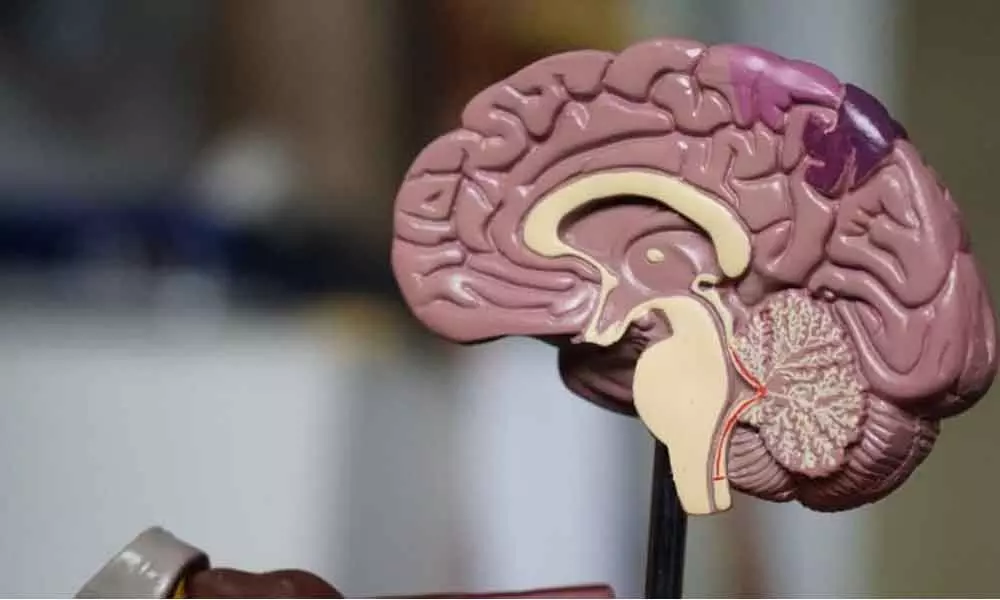Live
- Allu Arjun’s house attacked, police arrest 6 persons in city
- APSRTC to replace diesel buses with electric buses
- Komatireddy brothers should get Oscar for lying: BRS
- KTR asks farmers to up the ante against TG govt
- SCB residents raise pitch for fair compensation for acquired lands
- TGMC crackdown on quackery continues, over 400 FIRs filed
- TG seeks PMAY fund boost as 80pc of State turns urban
- Don’t buy assets from known ganja smugglers: DIG
- Youth Cong takes out ‘mashaal rally’ condemning Amit Shah’s statement on Ambedkar
- Hyderabad remained peaceful in 2024,but sees sharp spike in cybercrimes
Just In
Scientists develop novel technique to measure empathy


Washington D.C.: A group of researchers have found that it is possible to assess a person's ability to feel empathy by studying their brain activity...
Washington D.C.: A group of researchers have found that it is possible to assess a person's ability to feel empathy by studying their brain activity while they are resting rather than while they are engaged in specific tasks.
Traditionally, empathy is assessed through the use of questionnaires and psychological assessments. The findings of this study offer an alternative to people who may have difficulty filling out questionnaires, such as people with severe mental illness or autism, said senior author Dr Marco Iacoboni, professor of psychiatry and biobehavioral sciences at the David Geffen School of Medicine at UCLA.
"Assessing empathy is often the hardest in the populations that need it most," Iacoboni said. "Empathy is a cornerstone of mental health and well-being. It promotes social and cooperative behaviour through our concern for others. It also helps us to infer and predict the internal feelings, behaviour and intentions of others."
For this study published in Frontiers in Integrative Neuroscience, UCLA researchers recruited 58 male and female participants aged 18 to 35.
Resting brain activity data were collected using functional magnetic resonance imaging, or fMRI, a noninvasive technique for measuring and mapping brain activity through small changes in blood flow. Participants were told to let their minds wander while keeping their eyes still, by looking at a fixation cross on a black screen.
Afterwards, the participants completed questionnaires designed to measure empathy. They rated how statements such as "I often have tender, concerned feelings for people less fortunate than me" and "I sometimes try to understand my friends better by imagining how things look from their perspective" described them on a five-point scale from "not well" to "very well."
Researchers wanted to measure how accurately they could predict the participants' empathic disposition, characterized as the willingness and ability to understand another's situation, by analyzing the brain scans.
The predictions were made by looking into resting activity in specific brain networks that earlier studies demonstrated are important for empathy. Researchers used a form of artificial intelligence called machine learning, which can pick up subtle patterns in data that more traditional data analyses might not.
"We found that even when not engaged directly in a task that involves empathy, brain activity within these networks can reveal people's empathic disposition," Iacoboni said. "The beauty of the study is that the MRIs helped us predict the results of each participant's questionnaire."
The findings could help health care professionals better assess empathy in people with autism or schizophrenia, who may have difficulties filling out questionnaires or expressing emotion. The study also adds to a growing body of research suggesting that brains at rest, are as active as brains engaged in a task, and that brain networks in the resting brain may interact similarly as when they are engaged in a task.

© 2024 Hyderabad Media House Limited/The Hans India. All rights reserved. Powered by hocalwire.com






